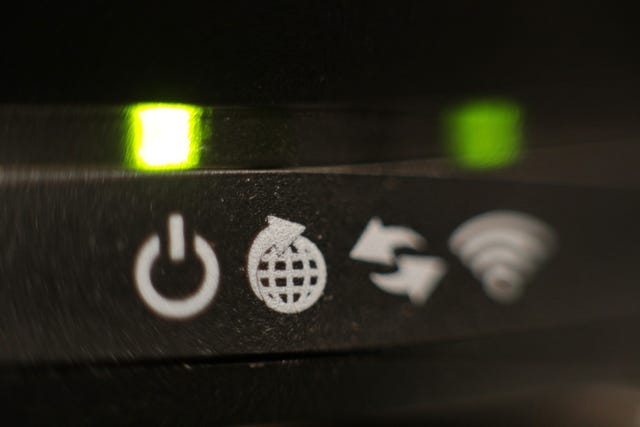
More than one in six households are struggling to afford broadband during the third lockdown according to a poll, amid warnings that the poorest are being “locked out” of key services.
While efforts have been made to provide vulnerable children with internet access and laptops to continue learning from home, Citizens Advice said this is “just a sticking plaster” to the wider digital divide problem.
According to the charity, only three of the largest 13 broadband providers have launched affordable tariffs for those on low-income benefits.
It argues that broadband is an essential utility, not a luxury, and wants the Government and Ofcom to make it compulsory for all providers to offer cheaper plans to people struggling financially.
“Broadband allows people to be part of society,” said Ned Dukes, community advice worker at Citizens Advice Haringey.
“So much of the support is now online, as well as job applications and job interviews.
“Without access to the internet, people are effectively locked out of key services and everything they need to live a full and proper life.
“But for people on welfare benefits, every single decision about how they spend £1 can make a difference. Broadband can be incredibly expensive.”
Out of 1,646 surveyed who said they have broadband, 275 said they struggled to pay their broadband bills between March last year and January 2021.
One woman who lives alone told the charity she has had to rely on limited smartphone data to video call her grandchildren and elderly parents, as she cannot afford to have broadband.

“I’m literally being penalised for not having access to the internet,” she said.
“Most things nowadays are online: food shopping when I was isolating, applications, checking my Universal Credit account, getting the best deal for gas and so forth.
“And so when you don’t have access to the internet you lose out as they put all the best deals and information online.”
Citizens Advice estimated that 2.3 million people had fallen behind on their broadband bill towards the end of last year.
Alistair Cromwell, acting chief executive of Citizens Advice, said: “The pandemic has cemented the fact that broadband is an essential utility. It is not a luxury for those who can afford it.
“Without broadband we struggle to teach our children, order food and medicines, work or search for a job.
“While the Government has provided free laptops and mobile data to help children study at home, these are ultimately just a sticking plaster.
“To tackle the digital divide, it must take urgent action to ensure everyone can afford their broadband, no matter which provider they are with.”
Ofcom responded to the findings, saying: “We agree it’s vital people can access affordable broadband.
“Some companies already offer low cost tariffs for certain customers but we’re pushing all providers to do more to support those in financial difficulty.
“Although we can’t make social tariffs mandatory without a formal direction from Government, we’re continuing to collect data on affordability and we’re ready to act if more measures are needed.”
A Government spokesman said: “We brokered a deal with the major telecoms providers who have committed to support those finding it difficult to pay their bills. This includes ensuring customers are fairly treated and to offer generous mobile and landline packages to vulnerable customers.
“However we do encourage providers to go further on fixed broadband and offer a social tariff to those on low incomes during these challenging times.”


Comments: Our rules
We want our comments to be a lively and valuable part of our community - a place where readers can debate and engage with the most important local issues. The ability to comment on our stories is a privilege, not a right, however, and that privilege may be withdrawn if it is abused or misused.
Please report any comments that break our rules.
Read the rules here